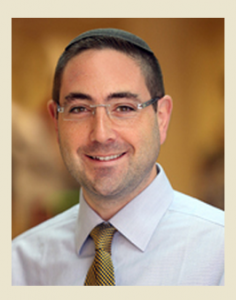
By Rabbi Ari Enkin, rabbinic director, United with Israel
We are taught that there are three partners in the creation of each human being: the father, the mother and God. When a person honors his or her parents, it is as if that individual has honored God.
The commandment of “Honor your father and mother” is listed among the first five. But honoring parents deals with personal relationships – between children and parents! What is going on here?
The Ten Commandments are divided into two parts. Our sages teach us that the first five concern Man and God, while the last five deal with relationships among people.
So here’s the question: The commandment of “Honor your father and mother” is listed among the first five. Yet honoring parents deals with personal relationships – between children and parents! Why is the mitzvah (commandment) of honoring one’s parents not listed in the second grouping?
The reason that the commandment to “honor your father and mother” is among the first five is because honoring one’s parents is considered to be honoring God. We are taught that there are three partners in the creation of each human being: the father, the mother and God. When a person honors his or her parents, it is as if that individual has honored God.
The importance of this mitzvah cannot be overstated, and there are many different aspects of it that are not well-known. We hope that after concluding our discussion on this topic, we will all be a little more versed in the many details and thus be able to improve our adherence to this exalted mitzvah.
Honoring Parents: Important Not Just for Jews
The Talmud tells the story of a non-Jewish man by the name of Dama. His father, Netina, was a jeweler. Representatives of the Holy Temple in Jerusalem once came knocking on his door, wishing to buy certain precious stones for the breastplate of the High Priest. The problem was that the key to Netina’s diamond vault was lying under his pillow and Dama refused to awaken his sleeping father, even if it meant losing a fortune in a lost diamond sale. The rabbis were turned away and were disappointed, to say the least.
God decided to reward Dama for his efforts. Sometime later, representatives of the Holy Temple once again came to Dama, searching for a ritually required red heifer that was among his father’s herd. The sale was made, and the previous year’s loss was fully recouped, and then some. The Talmud lauds this selfless act of honoring one’s parents.
A modern version of the story is found in a remarkable ruling by New York Judge Douglas McKeon in a landlord-tenant case. Here are the details:
The landlord sued to remove Mrs. *H* from her rent-stabilized apartment due to the fact that she had spent several years in Greece looking after her sick mother, who eventually died. Upon her mother’s demise, *H* sought to return to her apartment, but the landlord claimed she had abandoned it and would be removed.
The decision rendered by the three-judge panel was to allow her to remain in the apartment. In his ruling Judge Douglas McKeon wrote most poignantly:
“… There was a time in many cultures when the care of a sick or elderly parent by a child was the hallmark of familial responsibility. But, according to that frequently uttered refrain, times change. Mothers or fathers, sometimes both, would often live under the same roof with their offspring and the hands-on care provided would be substantial. To the outsider, considerable sacrifice seemed involved, but for the caregiver child, the care of mom and dad was the natural progression in life’s journey; those who reared and raised, and gave life, would be comforted and looked after in the twilight of their own. Sad to say, as with so many old-fashioned values, adherence dims with each new generation, and parental care in some instances has been reduced to an occasional call to a nurse’s aide or an infrequent, obligatory visit to a nursing home.
“But there are those, undoubtedly dwindling in number, who remain students of the old school, staying true to basic traditions and still giving life to words now seldomly spoken: “My mother will never go to a nursing home.” *H* is one of those rare individuals, and her heartfelt decision to travel to Greece to be at her mother’s side during a final illness should not visit upon her the draconian penalty of forfeiture of her long-held regulated apartment.”
Indeed, all of us can learn a lesson from this case.
Do You Love Israel? Make a Donation - Show Your Support!
Donate to vital charities that help protect Israeli citizens and inspire millions around the world to support Israel too!
Now more than ever, Israel needs your help to fight and win the war -- including on the battlefield of public opinion.
Antisemitism, anti-Israel bias and boycotts are out of control. Israel's enemies are inciting terror and violence against innocent Israelis and Jews around the world. Help us fight back!


